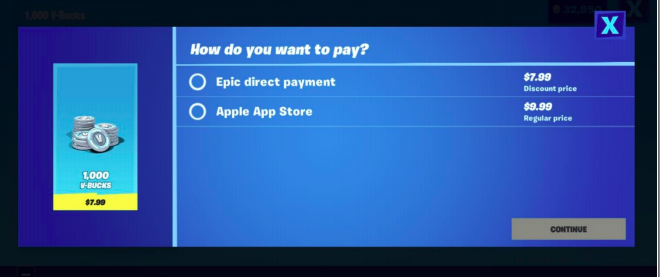Whilst there are a lot of benefits to the ways in which social media and online giants have democratized access to a larger, global marketplace – they are also gatekeepers, requiring entrance fees, or closing doors after they’ve taken what they needed.
In recent antitrust hearings with Amazon CEO Jeff Bezos, Apple CEO Tim Cook, Google CEO Sundar Pichai, and Facebook CEO Mark Zuckerberg, the tech giants were grilled on their companies’ actions. Although the exchanges often became politicized, there are actions these companies are taking that harm businesses, both big and small, that as a business owner you should be aware of.
It isn’t just about the success and size of these companies but the actions they have taken to dominate their markets continue to take in order to be successful and the top of their field. As CNN Business’ Brian Fung explains, “ a company doesn’t violate antitrust law simply for being big. But it can violate the law if it does things that harm competition.”
The former head of antitrust enforcement in the U.S. Justice Department, Bill Baer has said of Amazon that, “it is not their success that justifies government intervention… it is when that success is used in a way that unfairly limits competition.”
So how have these Big Tech companies limited competition, and how have SMBs been affected?
Google/Alphabet
When it comes to taking down the competition, Google (and parent company Alphabet) has a long history. For example, Google is known for investing in startups only to learn from them and then close them down to offer Google versions of their product.
Back in 2012, they bought KikScore, a company that validated businesses online to demonstrate trustworthiness. After acquiring their technology and “certain assets,” Google shut the company down. For KikScore’s 1,700+ customers, they recommended they switch to Google’s Trusted Store product.
Again in 2020 – Google bought the Canadian smart glasses company North on June 30th. By August, all of North’s smart glasses would be nonfunctional and the product had been discontinued.
But what about Google’s signature product?
In the recent antitrust hearings, Republican lawmakers were more focussed on anecdotal evidence that the company is stifling conservative voices. (Like your grandpa down in Florida complaining about how his emails would end up in the spam folder). But where Google is really hurting competition, from big businesses to small, is in its search engine.
Google Search has been accused of populating the search engine results page (SERP) with its own content to the detriment of its competitors. An analysis by The Markup found that “41% of the first page on Google search results is taken up by Google products.” This matters because 9 out of every 10 search queries made online are made through Google.
A 2017 European antitrust case against Google found that Google was prioritizing its own Shopping results in the search engine above other comparison shopping merchants. The investigation used “significant quantities of real-world data including 5.2 Terabytes of actual search results from Google (around 1.7 billion search queries)” and Google was fined €2.42 billion, or $2.85 billion, by the European Commission.
Although Google’s products have added convenience and value to modern life, the array of information provided on the SERP is so extensive that it has become a difficult marketplace to be discovered organically, especially as a small business. SERP features can include:
- Featured Snippets
- Google’s dictionary definition
- Related Questions
- Knowledge Cards
- Knowledge Panels
- Local Pack
- Local Teaser Pack
- Image Pack
- “Related” carousel
- News Box
- Answers
- Google Translate
- Google Shopping
- Google Flights
- Google Hotels
- Google Ads
- Sitelinks
- Reviews
- In-Depth Articles
- Tweets
- Videos
And soon, after being rolled out in India, People Cards will appear on the SERP – short bios that users can create for themselves (like a LinkedIn profile). I would say watch out! but Google has been coming after LinkedIn for years.
These SERP features make Google a better product for the user but they have real, immediate, and costly consequences on businesses. According to The MarkUp, “travel websites large and small said boosting Google Flights and Google Hotels on Google’s search results page has taken away business, even though some pay Google billions for ads.”
The best thing to do is to work with an SEO agency and compete for a place on these SERP features to improve your visibility as a small business on Google.
Facebook is useful, helping small businesses reach their audiences and consistently bringing out new tools within their platforms to help businesses be more successful. This includes shoppable elements on Facebook and Instagram, using Messenger as part of your communications strategy, and broader ways to use Facebook and Instagram as part of your ecommerce and marketing.
Though the German federal court tried to block the company from creating ‘super profiles’ of its users, and the Cambridge Analytica scandal still has people worried about big data, even the way in which Facebook, through its many properties, collects data benefits small businesses trying to target niche audiences with specific advertising.
My personal gripe stems from anecdotal observations that Instagram has been stifling the organic reach of business accounts in attempts to extort boosted post payments from companies. This has been debunked and Instagram claims to treat all account types equally in its algorithm – I say conspiracy.
But while we’re on the subject of Instagram, a lot of the heat Facebook is receiving in these antitrust hearings is about Facebook’s acquisition of Instagram in 2012. In an email written by Zuckerberg before the acquisition, he tells an employee, “I remember your internal post about how Instagram was our threat and not Google+. You were basically right. One thing about startups though is you can often acquire them. I think this is a good outcome for everyone.”
So the argument antitrust lawyers are making is that Facebook bought Instagram because it was a threat to Facebook’s success. But as Facebook goes on to prove – if you can’t buy them, copy them.
As well as buying competitors, Facebook has also straight-up copied the competition. When Snapchat wouldn’t sell to Facebook in 2013 (for a buyout offer reportedly more than $3 billion!), Facebook began copying popular elements that made Snapchat stand out (face filters, messages that disappear after a certain amount of time, Stories) on their line of products, including Facebook, Messenger, WhatsApp, and Instagram.
We see this happening again, as recently as August 2020 when Instagram launched Reels, it’s copycat of competitor/rival TikTok.
Amazon
Amazon has also bought competitors because they were a threat to their bottom line. A decade ago, Diapers.com was out-competing them, and internal emails revealed concern within Amazon:
“More evidence these guys are our #1 short term competitor. As I’ve mentioned to each of you, I think, we need to match pricing on these guys no matter what the cost.”
They took a $200 million hit in one month in an attempt to weaken Diapers.com before giving up and buying their parent company Quidsi for $545 million in 2011. Amazon then shut down Diapers.com in 2017.
In July 2020, Jeff Bezos made his first appearance in front of Congress in the antitrust hearing. The world’s richest man was grilled about using strategic investments to gain access to and exploit the intelligence of the startups they acquire, to then go on to compete against them with Amazon versions of the products.
Amazon is not only being probed in two US states, California and Washington, but by the European Commission, for the ways in which it stifles ecommerce competition. The company is both the biggest retail marketplace online and the biggest merchant, a conflict of interest that begs for antitrust intervention.
Amazon’s practice of replicating successful products, undercutting the price of its competitors (often at a loss), and then actively promoting its own products above third-party sellers is a threat both to the consumers that want high-quality goods and to the manufacturers and sellers that are providing them.
Apple
As well as being grilled by Congress, Tim Apple Cook’s company, Apple, is being investigated by the European Commission after complaints about the App Store. The case stems from an original complaint from the music streaming company Spotify last year about how Apple charges applications on the App Store up to 30% commission from in-app sales. Spotify, and other apps, have argued that the fee is a tax against competitors that violates competition laws.
“At the heart of our case is the fact that Apple acts as the stadium owner, referee, and player, and tilts the playing field in favor of its own services,” Spotify’s chief legal officer, Horacio Gutierrez, told reporters.
Apple controls the App Store, as well as the iPhone itself. Many Apple apps come installed on the iPhone as standard and cannot be deleted. When competitors arise, Apple can build a better product, automatically install it on phones, and make it free to the users.
Apple has made the work of app developers redundant by incorporating their ideas into the functionality of the phone (like the flashlight capability), or by copying the purpose of an app and integrating it into an existing Apple app or as a free standalone App.
The Washington Post reported that as Clue (an app used to track menstruation and fertility) rose to the top of the Health and Fitness category in the App Store, Apple announced it would include fertility and period prediction into its Health app, which is pre-installed on all iPhones.
After they could not compete with Amazon’s low prices and dominance in the ebook market, it was revealed that Apple conspired with five publishers to increase ebook prices so that Amazon would be forced to raise its prices. Apple settled the case for $450 million.
And just this month, Epic Games opened a new lawsuit against both Apple and Google for antitrust violations. Epic added an option for Fortnite players to buy in-app currency directly from them, or to pay a premium to do it through Apple – as a result, Apple pulled Fortnite from the App Store.

Anticipating Apple’s response, Epic revealed an antitrust lawsuit against Apple and started a PR campaign against the company, including this parody of Apple’s 1984-inspired Macintosh commercial.
So keep an eye on what is going on with the Big Tech companies – if their dominance has directly impacted your business, call your congressperson, or tell us about it. Their success shouldn’t be a result of sabotaging the competition.

